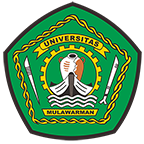ESG: Criteria 2.5

2.5 - Teaching Staff Qualifications and Competence
Universitas Mulawarman (Unmul) is committed to maintaining high academic standards by ensuring that teaching staff across its programs, including the Magister Pendidikan Bahasa Inggris (MPBI), possess appropriate academic qualifications, demonstrate teaching competence, and engage in continuous professional development. The institution aligns faculty recruitment, development, and performance monitoring with national standards and increasingly with international best practices to support global competitiveness.
1. Faculty Qualifications
Faculty qualifications at Unmul comply with national standards set by the Ministry of Education and the Indonesian Directorate of Higher Education. For teaching positions in undergraduate programs, the minimum requirement is a Master's degree (S2), while for research-intensive programs—such as MPBI and other postgraduate degrees—faculty are required to hold a Doctorate (S3). At the institutional level, certain faculties such as Pharmacy, Medicine, and Engineering have already achieved high levels of doctoral staff and have begun recruiting based on international hiring standards.
In the MPBI program, all core faculty members hold Doctoral degrees in the field of English Education, Applied Linguistics, or related disciplines. This reflects compliance with both national regulations and program accreditation expectations. Faculty also maintain an active research portfolio and supervise Master's theses, as required by the learning outcomes associated with the Indonesian Qualification Framework (KKNI level 8).
However, across several faculties, including Social Sciences and Humanities, the proportion of PhD-qualified staff remains lower than optimal. Moreover, the university currently has a limited number of international teaching staff, which constrains the global exposure of students and affects the delivery of bilingual or English-taught programs.
To address these challenges, Unmul has initiated several measures. These include establishing incentives for academic staff to pursue doctoral studies, launching collaborative supervision schemes with international universities, and expanding international recruitment through partnerships and visiting scholar programs. These strategies aim to increase the number of Doctoral-qualified and international staff within the next accreditation cycle.
2. Faculty Development
Faculty development at Unmul is institutionalized through the Learning Development Center (LDC), which organizes regular training programs on pedagogy, curriculum design, assessment methods, and digital teaching tools. For MPBI, faculty members are required to attend these training sessions as part of performance appraisal and academic promotion. Topics covered include student-centered learning, blended teaching strategies, and outcome-based education—all of which support high-impact teaching practices.
Beyond pedagogy, Unmul actively supports faculty research and academic advancement through funding schemes such as institutional research grants, LPDP (Indonesia Endowment Fund for Education), BRIN (National Research and Innovation Agency), and international collaboration programs (e.g., SEAMEO, AIMS, Erasmus+). These opportunities allow staff to develop academic networks and enhance scholarly outputs aligned with institutional KPIs.
Despite these efforts, industry involvement in faculty development remains limited, particularly in non-applied disciplines. There is also a growing need to equip faculty—especially those in programs aiming for international accreditation—with structured English proficiency training to support bilingual teaching and cross-border collaboration.
To improve these areas, the university plans to strengthen industry-academic partnerships through joint training, internships for lecturers in professional settings, and sabbatical arrangements. Moreover, the LDC is designing an English for Academic Purposes (EAP) program for lecturers, especially targeting programs that serve international students or aim to offer dual-language instruction.
